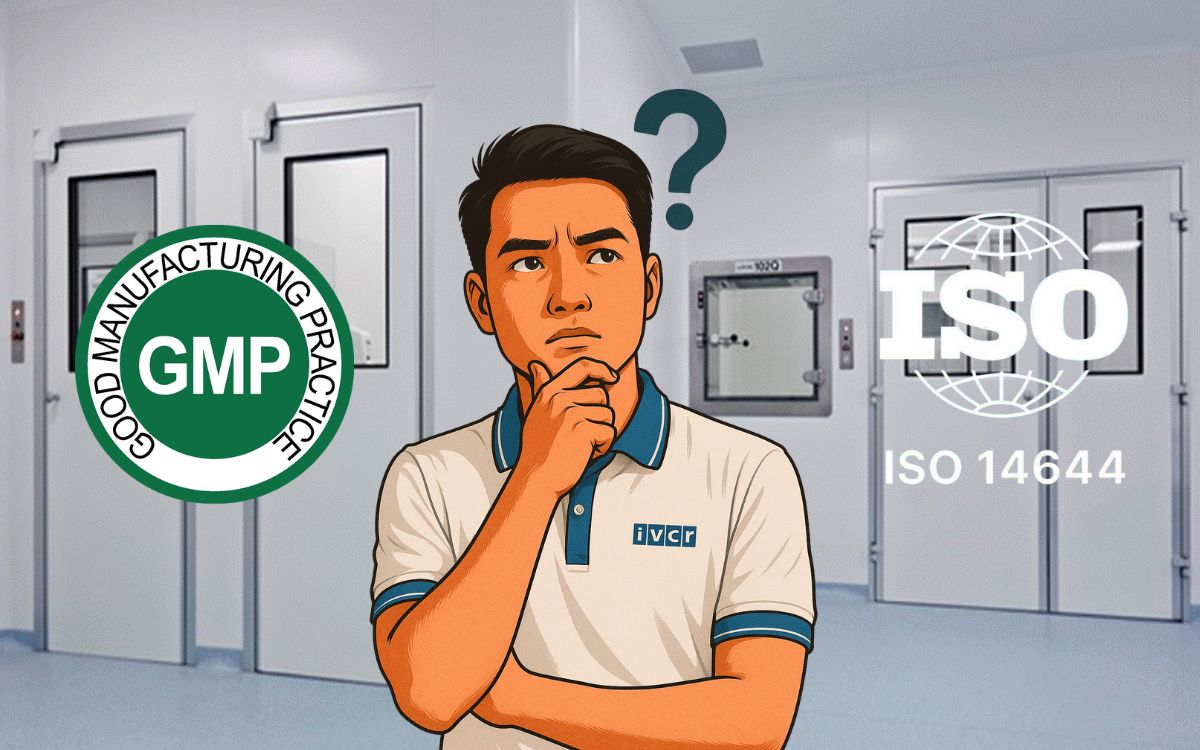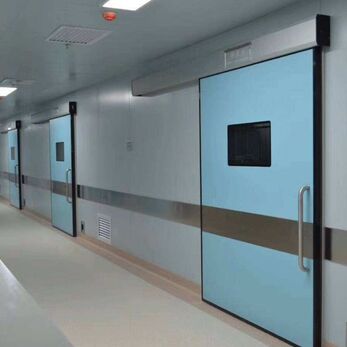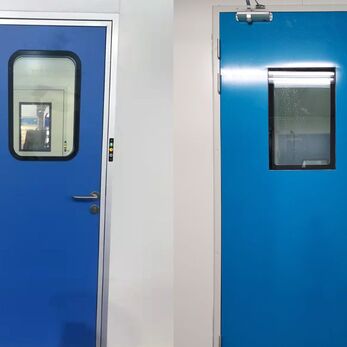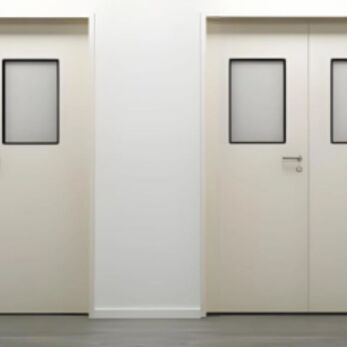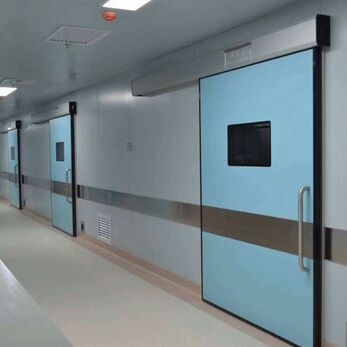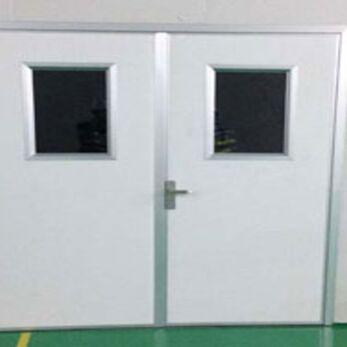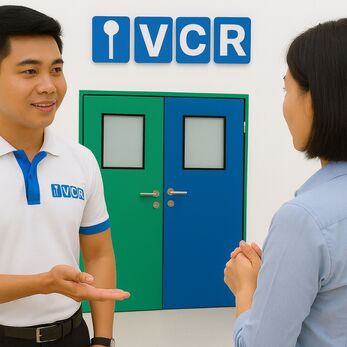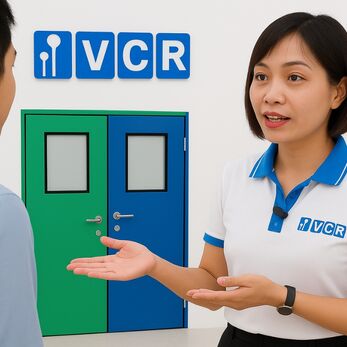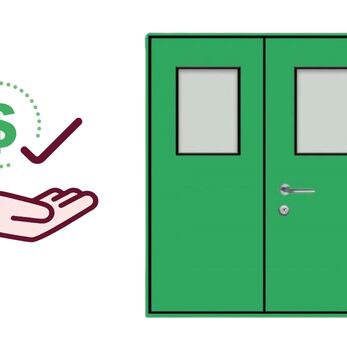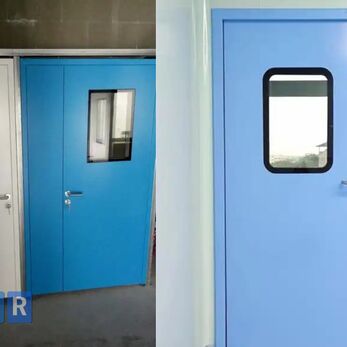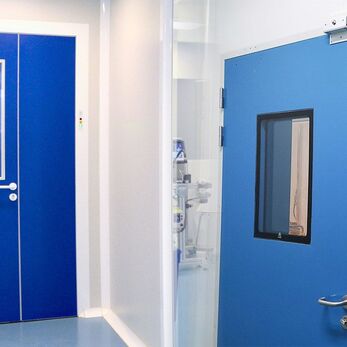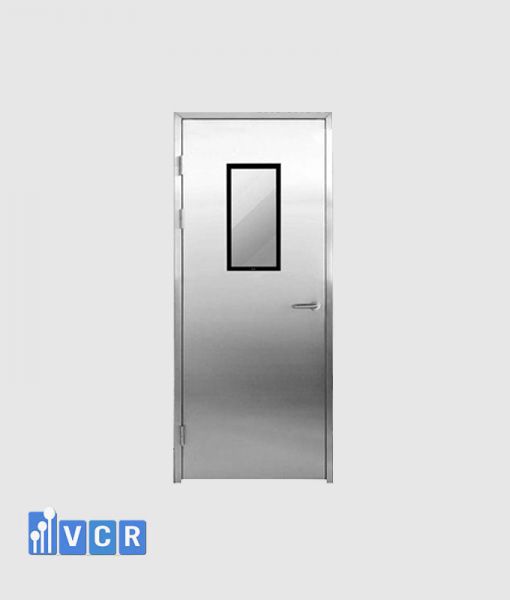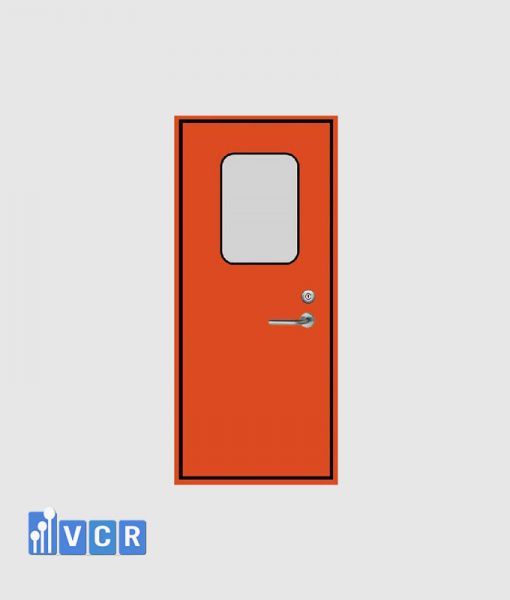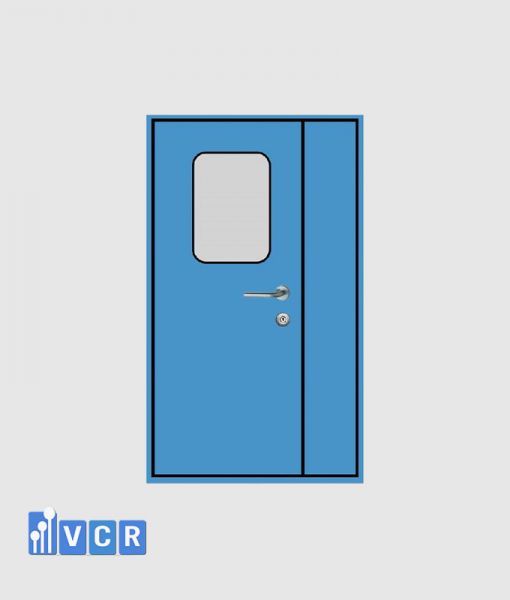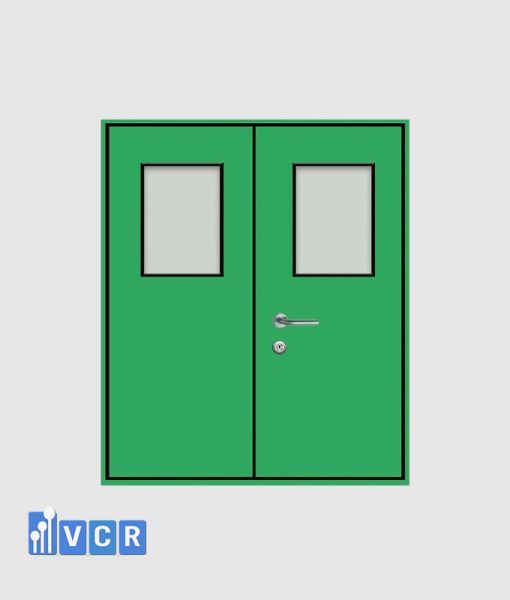In a cleanroom system, doors are not only a physical boundary but also an environmental control factor, preventing cross-contamination and maintaining stable pressure. Choosing a cleanroom door supplier that meets GMP standards according to ISO 14644 is an important step for businesses to ensure compliance with safety and quality requirements.
- 1. What is a GMP Cleanroom Door according to ISO 14644?
- 2. Key Criteria for Evaluating GMP-Compliant Cleanroom Doors
- 3. Why Choose a Specialized Supplier for Cleanroom Doors?
- 4. VCR - Pioneer Supplier of GMP-Compliant Cleanroom Doors
- 5. Practical Applications of Cleanroom Doors by Industry
- 6. Frequently Asked Questions about GMP Cleanroom Doors
- 7. Do You Need GMP-Compliant Cleanroom Door Solutions?
1. What is a GMP Cleanroom Door according to ISO 14644?
In a cleanroom system, doors are not only physical barriers between two areas but also play an important role in controlling the environment, preventing cross-contamination, and maintaining stable pressure differentials - which are core requirements of standards such as GMP and ISO 14644.
GMP and ISO 14644 requirements for cleanroom doors:
- GMP (Good Manufacturing Practices), especially EU GMP Annex 1, requires that doors in pharmaceutical manufacturing areas must:
- Ensure airtightness to maintain positive pressure between cleanroom grades
- Be easy to clean, resistant to dust accumulation, and non-particle shedding
- Integrate with control systems such as interlocks to prevent simultaneous opening
- ISO 14644, particularly Part 4 (design) and Part 3 (performance testing), stipulates that:
- Doors must be an integral part of airflow and contamination control structures
- Doors must be tested for airtightness and zoning effectiveness
2. Key Criteria for Evaluating GMP-Compliant Cleanroom Doors
To maintain the integrity of the cleanroom environment and comply with standards such as GMP and ISO 14644, cleanroom doors must be assessed based on technical and functional aspects:
Material Construction
Cleanroom doors must be made of low-shedding, corrosion-resistant, and easy-to-clean materials, commonly including:
- Stainless steel 304/316L: corrosion-resistant, durable in chemical environments (pharmaceuticals, laboratories)
- HPL (High Pressure Laminate): smooth surface, wear-resistant, aesthetically pleasing
- PU or EPS panel with coated steel: lightweight, insulating, cost-effective
- Aluminum profiles: strong frame, easy customization, widely used in electronics
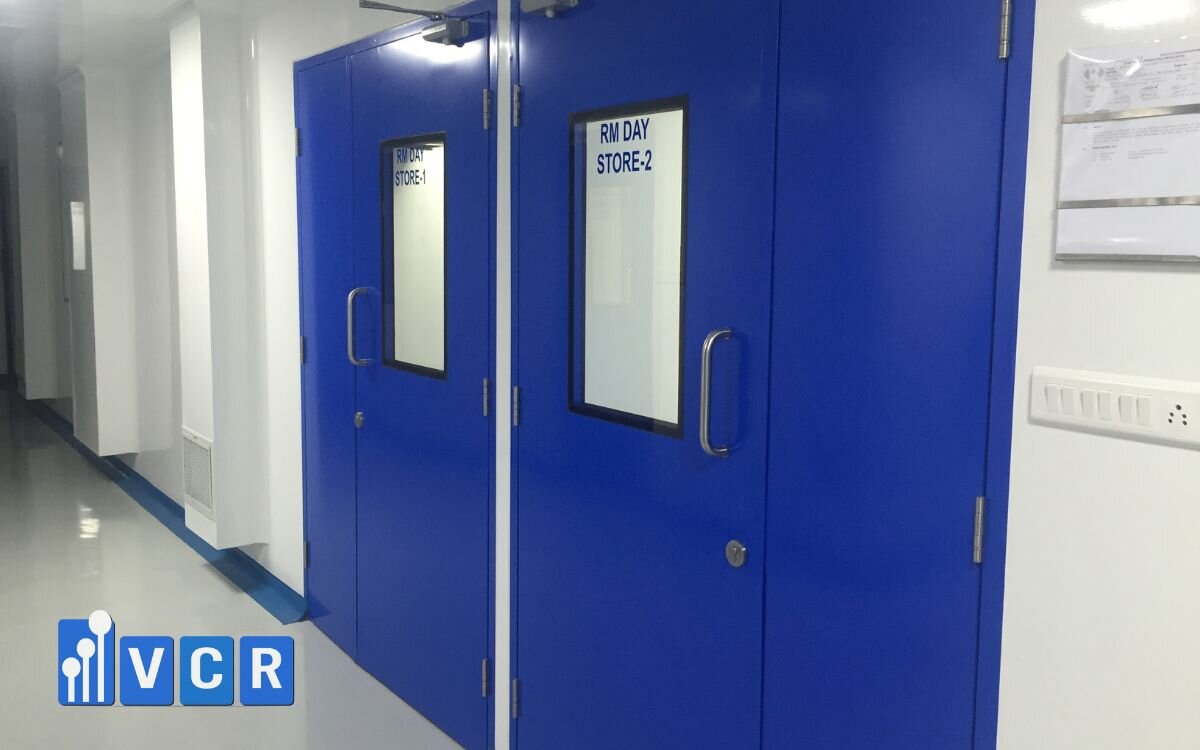
Structural Design
- Ensure airtightness according to EN 12207 class 2-3
- Smooth surface with no gaps - minimizes microbial accumulation
- Rounded corners and concealed hinges - easy to clean and GMP compliant
Additional Features
- Observation windows (double glazing) for safety and process monitoring
- Anti-collision plates (stainless steel or ABS) to protect against trolley impacts
- Interlock system to prevent simultaneous door opening, maintaining stable cleanroom pressure
Compliance Standards
|
Standard |
Application Scope |
|
ISO 14644-1 |
Cleanroom classification levels |
|
ISO 14644-2 |
Monitoring and contamination control requirements |
|
ISO 14644-3 |
Test methods for leakage and airtightness |
|
EN 12207 |
Door air permeability classification |
|
GMP Annex 1 |
Door requirements in aseptic production areas |
Comparison of Common Cleanroom Door Types
|
Door Type |
Advantages |
Disadvantages |
Suitable Applications |
|
Hinged Door |
Cost-effective, easy to install |
Requires swing space |
Airlocks, corridors |
|
Sliding Door |
Space-saving |
More complex mechanism |
Small areas, trolley pathways |
|
Automatic Door |
Modern, touch-free operation |
Higher cost |
Operating rooms, aseptic areas |
See more: Expert Guide to Cleanroom Steel Door Installation
3. Why Choose a Specialized Supplier for Cleanroom Doors?
In a cleanroom system - where every detail directly impacts product quality and compliance with international standards - choosing a supplier cannot be taken lightly. Only specialized providers can ensure:
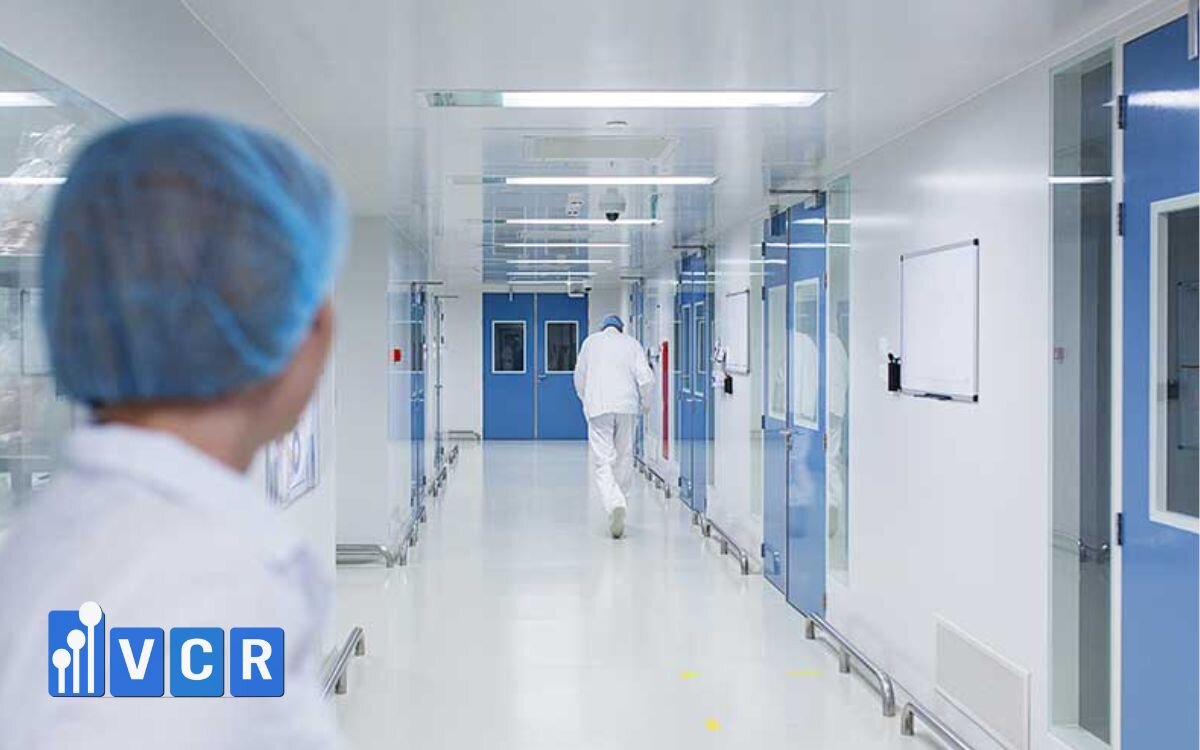
In-depth knowledge of GMP and ISO 14644 across industries
- Pharmaceuticals: Doors must support differential pressure control in weighing rooms, prevent cross-contamination in aseptic areas - in compliance with EU GMP Annex 1.
- Food: Moisture-resistant, easy-to-clean surfaces suitable for chemical washing, HACCP compliant.
- Cosmetics: Glass doors with interlocks, aesthetic surfaces, scratch resistance - in line with ISO 22716.
- Electronics: Anti-static, low-particle shedding, suitable for ISO Class 5-7 environments.
Specialized suppliers can customize doors according to actual operational needs and compliance requirements for each sector.
Correct solutions for each functional area
A GMP-compliant cleanroom system is divided into zones with specific requirements:
- Weighing rooms (pharma): airtight doors, 3-door interlock, with observation window
- Airlocks: fast-closing doors with automatic sensors
- Material storage rooms: large sliding doors with anti-collision panels
- Changing rooms: durable PU panel doors, moisture-resistant
Misunderstanding functional requirements can result in GMP audit failures, causing costly delays and redesigns.
Proven experience and complete certification
- Airtightness testing, mechanical durability, fire resistance, and antimicrobial tests
- Certificates of conformity, design drawings, installation manuals
- Professional installation ensuring cleanroom airflow integrity is not compromised
See more: Why Automatic Doors are the Superior Choice for Pharmaceutical Cleanrooms
4. VCR - Pioneer Supplier of GMP-Compliant Cleanroom Doors
With more than 10 years of experience in the design, construction, and supply of cleanroom equipment, Vietnam Cleanroom Equipment (VCR) is not only a supplier but also a trusted specialized partner for hundreds of pharmaceutical, food, cosmetic, and electronics factories nationwide.
Industry expertise - Standardized compliance
- In-depth knowledge of each field: from pressure differential control in pharmaceuticals to moisture resistance in food production and anti-static measures in electronics.
- Strict compliance with international standards: ISO 14644, EU-GMP, HACCP, ISO 22716.
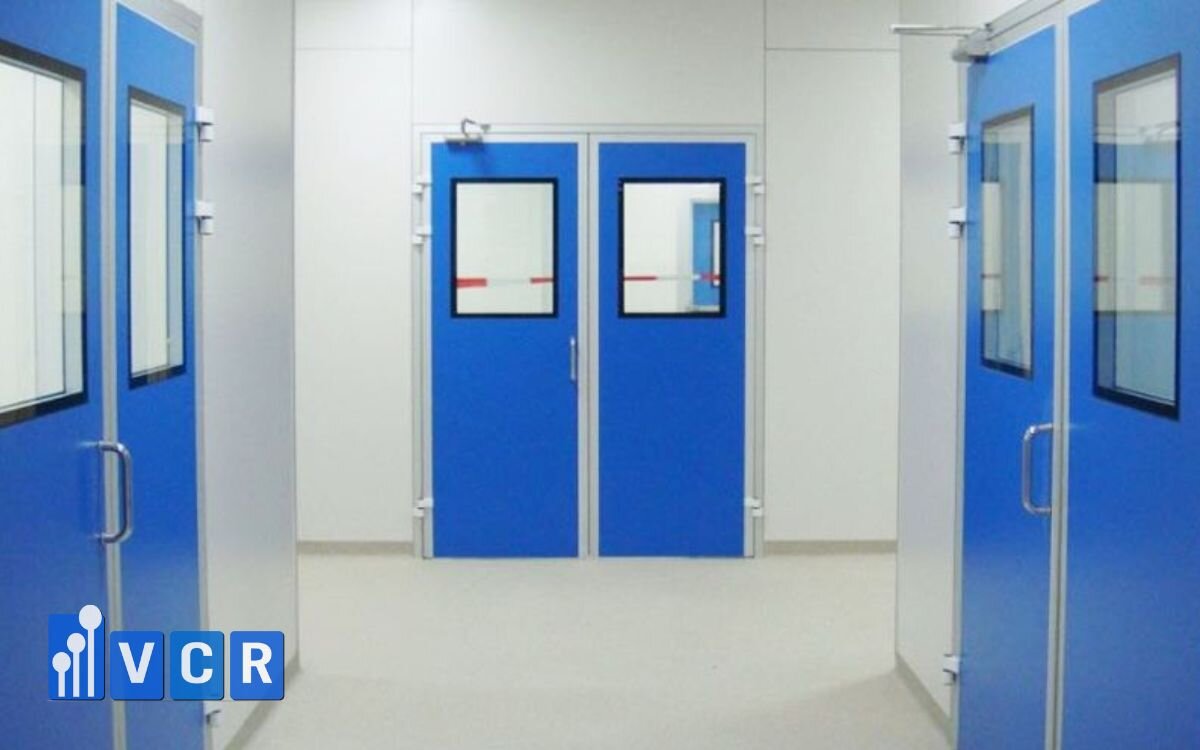
Wide range of certified cleanroom doors
- Stainless steel/HPL/PU panel hinged doors for airlocks, corridors, and storage areas.
- Automatic sliding doors for material transfer areas.
- Tempered glass doors with interlock for observation rooms and operation areas.
- Lead-lined doors for radiation protection in X-ray rooms and biosafety laboratories.
All products come with testing certificates, technical drawings, and installation manuals, ensuring smooth GMP/ISO acceptance.
Customized design - Optimized for each project
VCR does not provide generic mass products but offers flexible customized solutions:
- Dimensions based on actual drawings.
- Material selection according to environmental conditions.
- Options for glazing, locks, interlock, door closers, and accessories.
See more: Why Steel Doors Shine in Cleanroom Environments
5. Practical Applications of Cleanroom Doors by Industry
Each industry has specific environmental control requirements. Therefore, cleanroom doors cannot follow a “one-size-fits-all” approach but must be designed and selected according to operational needs.
Pharmaceuticals: Cross-contamination prevention in weighing rooms
In pharmaceutical weighing rooms, where active powder particles can easily cause cross-contamination, doors must ensure:
- High airtightness, with no leakage under large pressure differentials (≥15Pa).
- Integrated 3-door interlock to control people, material, and airflow.
- Non-dust, easy-to-clean surfaces resistant to alcohol or chemical disinfectants.
- Observation windows to monitor processes without opening doors.
Recommended solution: Stainless steel or HPL hinged doors with interlock and dust shields.
Food: Moisture-resistant, easy-to-clean doors for processing areas
In fresh food processing zones, high humidity and frequent sanitation require doors that:
- Are water-resistant, non-decaying, and mold-proof.
- Have smooth, washable surfaces that do not trap organic residue.
- Include anti-collision plates to prevent damage from trolleys.
- Feature food-safe locks that allow operation without direct hand contact (e.g., elbow-operated).
Recommended solution: PU panel doors with powder-coated steel finish, stainless steel hinges, and mica window inserts.
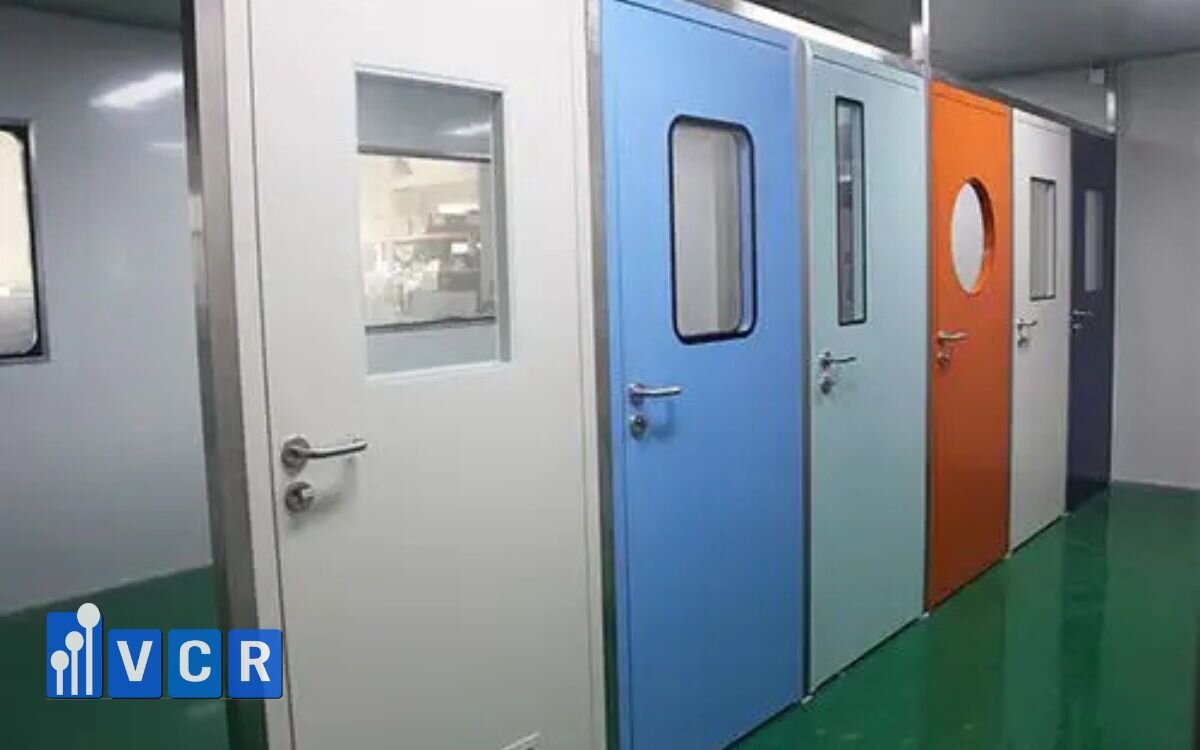
Electronics: Anti-static doors for SMT areas
In SMT (Surface Mount Technology) assembly areas where microchips are highly sensitive, cleanroom doors must provide:
- ESD (Electrostatic Discharge) protection.
- Non-shedding materials to prevent micro-particle contamination.
- Compatibility with differential pressure control and laminar airflow systems.
- Airtight design to maintain ISO Class 5-7 standards.
Recommended solution: Aluminum-framed doors with anti-static panels, ESD glass, and quick-opening mechanisms.
See more: Latest price list of Clean room doors used in food factories
6. Frequently Asked Questions about GMP Cleanroom Doors
How are GMP cleanroom doors different from regular doors?
Cleanroom doors are designed with high airtightness, smooth surfaces, dust-free construction, and materials that do not shed particles. These features are mandatory to meet GMP and ISO 14644 requirements, while regular doors cannot achieve such strict contamination control.
Are interlocks necessary for cleanroom doors?
Yes. Interlocks are essential devices that prevent two doors from opening simultaneously, thereby maintaining stable pressure differentials and avoiding cross-contamination between clean and non-clean zones. This is a mandatory requirement in pharmaceutical cleanrooms, changing rooms, and airlocks.
Which company supplies ISO 14644-certified cleanroom doors in Vietnam?
Vietnam Cleanroom Equipment (VCR) is a pioneer in Vietnam specializing in supplying cleanroom doors that meet ISO 14644, EN 12207, and GMP standards, with full certification, technical drawings, and industry-specific installation support. VCR has successfully implemented projects for hundreds of pharmaceutical, food, cosmetic, and electronics factories nationwide.
7. Do You Need GMP-Compliant Cleanroom Door Solutions?
Vietnam Cleanroom Equipment (VCR) is ready to support you from design and supply to certification of cleanroom doors according to GMP - ISO 14644 - EN 12207.
- Expert consultation to select the right doors for each industry: Pharmaceuticals - Food - Cosmetics - Electronics.
- Customized design based on technical drawings - Fast installation - Long-term warranty.
- Full testing certificates provided, ensuring smooth GMP acceptance.
Contact us today to receive sample drawings and a detailed quotation.
Hotline: 090.123.9008
Email: [email protected]
Website: https://cuaphongsachvcr.com/
Diep VCR




